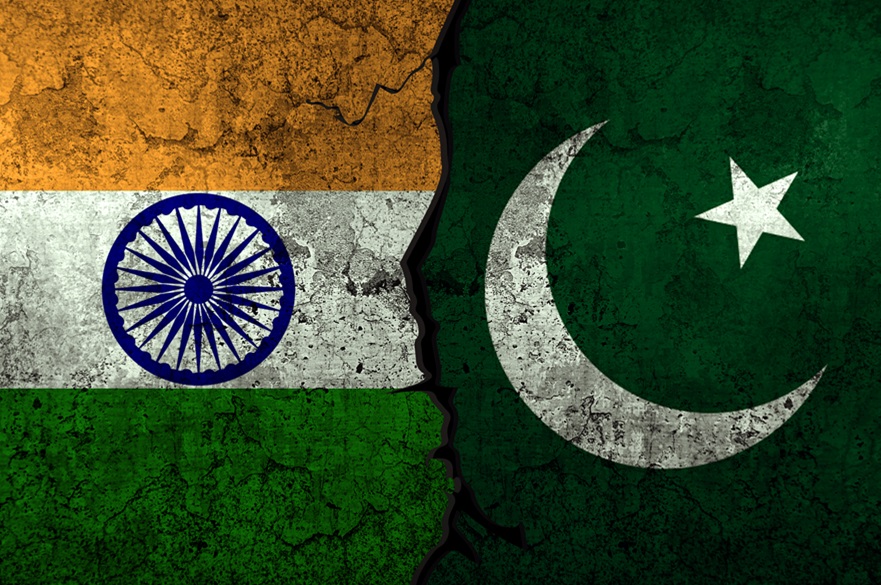Expert Blog: Kashmir terror attacks and identity politics - the need for a new Kashmir narrative
By Dr Sagarika Dutt | Published on 14 May 2025
Categories: Press office; Research; School of Social Sciences;

Expert Blog: Kashmir terror attacks and identity politics - the need for a new Kashmir narrative
The terror attacks on tourists in Pahalgam on 22 April that killed 26 people shocked the Indian nation and was condemned by everyone in the strongest possible terms. Some eyewitnesses claimed that the terrorists deliberately targeted Hindu men and shot them after ascertaining their identity. The Jammu & Kashmir Legislative Assembly passed a resolution within a few days that described the attacks as heinous, barbaric, inhumane, and a cowardly act. It was unanimously adopted by the Assembly after a three-hour long discussion. The resolution stated that such acts of terror directly attack the ethos of Kashmiriyat, the values of the Indian Constitution, and the spirit of unity, peace, and harmony. The Assembly expressed solidarity with the victims of the attacks and extended condolences to their families. It also hailed the bravery of Syed Adil Hussain, who sacrificed his life to save tourists, and praised the people of J&K for their resilience and unity in the aftermath. This isn’t the first time that terrorists have struck. Kashmir has a long history of anti-Indian sentiments and half of it is occupied and controlled by Pakistan, and is now part of Pakistan’s territory. The root of the problem lies in Kashmir’s Muslim majority. Many Kashmiris want the whole of Kashmir to be part of Pakistan and to be liberated from Indian rule. But Indians believe it is legally part of India as its Hindu ruler had decided to join India at independence in 1947. The revocation of the special status of Jammu and Kashmir in 2019 granted under article 370 of the Indian Constitution that took away the autonomy it had enjoyed since the creation of the Indian state did not go down well with the Kashmiris and their sympathisers. Moreover, since the downgrading of Kashmir’s status to a Union Territory, there have been calls for the restoration of the statehood of Jammu and Kashmir.
Militancy in Kashmir has a long history and has led to the army taking action against militants and suspected terrorists as the Indian government is responsible for Kashmir’s security. This has unfortunately led to human rights abuses in the past that human rights groups have spoken out against. On the other hand, the common people of Kashmir are very poor, although Kashmir is not the poorest state in the Indian Union. This has added to the disaffection of the local population. Kashmir elected a government less than a year ago and it is their duty to represent and look after the people of Kashmir, and ensure that there is communal harmony in the state. The rise of Hindu nationalism could sometimes make this a challenge. It could also undermine confidence in the Indian government. However, Kashmir has a large Muslim majority and its chief minister, Omar Abdullah, is a good man and could do a lot for the welfare of his people, especially if he has good relations with New Delhi. There is a lot of sympathy for Kashmiri Muslims in western countries but what is not taken into account is the fact that there are Hindu Kashmiris too who consider Kashmir to be their homeland. India’s first prime minister, Jawaharlal Nehru, was a Hindu Kashmiri and was proud of his Kashmiri heritage. Kashmir is a beautiful country and has always been a tourist destination. I visited Kashmir, including Srinagar and Pahalgam, many years ago on a family holiday and we had a great time. A famous poet once said about Kashmir ‘if there is a paradise on earth, it is here, it is here, it is here’.
The Indian government is trying to promote tourism in Kashmir and that is good for the local economy. It will create jobs and promote local businesses. Most of the Kashmiris understand this and are not opposed to tourism which brings in a lot of revenue on which their livelihoods depend. But it has not stamped out militancy and terrorism. So, the question is what can be done to deal with anti-Indian sentiments? India has a much stronger economy than Pakistan, so the Kashmiris are better off as Indian nationals. That is what common sense suggests. But it isn’t easy to change the historical narrative that has portrayed India as an occupying power and alienated the Kashmiris from the Indian state. This narrative has to change to make Kashmiris feel part of the Indian community. Integration with the Indian economy and investment in Kashmir’s economy is a good way forward, but the focus has to be on the people themselves as they need to see the benefits of good relations with India. There is no other alternative as retaliation by the Indian state and military action against the terror attacks has led to a war with Pakistan that no one wants. A ceasefire has now been agreed on and is an opportunity to start a new phase in relations between India and Pakistan.